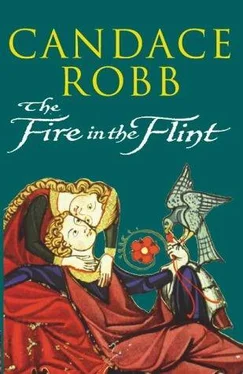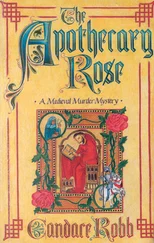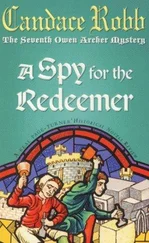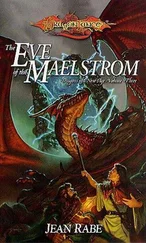Candace Robb - The Fire In The Flint
Здесь есть возможность читать онлайн «Candace Robb - The Fire In The Flint» весь текст электронной книги совершенно бесплатно (целиком полную версию без сокращений). В некоторых случаях можно слушать аудио, скачать через торрент в формате fb2 и присутствует краткое содержание. Год выпуска: 2010, ISBN: 2010, Издательство: Random House, Жанр: Исторический детектив, на английском языке. Описание произведения, (предисловие) а так же отзывы посетителей доступны на портале библиотеки ЛибКат.
- Название:The Fire In The Flint
- Автор:
- Издательство:Random House
- Жанр:
- Год:2010
- ISBN:9781446439265
- Рейтинг книги:4 / 5. Голосов: 1
-
Избранное:Добавить в избранное
- Отзывы:
-
Ваша оценка:
- 80
- 1
- 2
- 3
- 4
- 5
The Fire In The Flint: краткое содержание, описание и аннотация
Предлагаем к чтению аннотацию, описание, краткое содержание или предисловие (зависит от того, что написал сам автор книги «The Fire In The Flint»). Если вы не нашли необходимую информацию о книге — напишите в комментариях, мы постараемся отыскать её.
The Fire In The Flint — читать онлайн бесплатно полную книгу (весь текст) целиком
Ниже представлен текст книги, разбитый по страницам. Система сохранения места последней прочитанной страницы, позволяет с удобством читать онлайн бесплатно книгу «The Fire In The Flint», без необходимости каждый раз заново искать на чём Вы остановились. Поставьте закладку, и сможете в любой момент перейти на страницу, на которой закончили чтение.
Интервал:
Закладка:
‘I’ve not forgotten your feelings about your mother, Maggie, but we must think of Andrew.’
Was she being selfish? She was partially to blame for Andrew’s trouble, having urged him to do the very thing that his abbot had forbidden, going to Edinburgh Castle to ask for news of Roger.
The conversation left her in a familiar state of self-loathing. Roger had a knack for turning Margaret against herself. During his absence she had gradually shed the habit and resented its return.
She was grateful when her flux began and cooled his ardour. A few days earlier she would have been saddened that she was not with child, but at the moment she welcomed neither Roger’s attentions nor a stronger bond with him. She prayed God to forgive her for such antipathy towards her husband. But he gives me cause, my Lord .
Her anxiety over the reunion with her mother was a lesser matter, but when one worry ebbed, the other flowed. Her mother’s indifference to her family always unsettled Margaret. She felt diminished by her. If her mother did not love her, who else would? And her mother’s lack of compassion made Margaret question the source of her visions — Christ had preached love. It was the devil who was dispassionate. It was this aspect of her mother’s character that made her leery of her prophecies. At present Margaret was even less easy about seeing her mother than usual because if her fears about Roger’s purpose in taking her there were founded on fact, then her mother’s most recent prophecies regarding Margaret were central to her husband’s fresh betrayal.
Arguing that she was most anxious about Fergus, she tried several times to convince Roger to ride on to Perth first, but he stood firm. It strengthened her belief that this was no charitable visit.
On an afternoon of gentle breezes and golden sunlight, the company reached the Tay and continued east towards the nunnery, its tower visible ahead. The familiar countryside and the weather cheered Margaret until a shout up ahead brought the riders to a standstill. Four men, two of them archers with bows drawn, rose up from behind a stone wall.
‘God help us,’ Celia whimpered.
Margaret’s heart pounded. They rode high above the brush in the meadow with nothing to shield them, easy targets. She caught a glimpse of Roger’s grim expression as he rode forward to consult with Macrath.
‘English?’ she heard Macrath ask.
‘Unless they’ve taken the nunnery, no,’ said Roger. ‘The prioress is a Scotswoman of no great family. They would not bother to protect her.’
The two dismounted, handed the reins to the servants, and walked out to meet the four. Margaret crossed herself and prayed. As Roger drew near the four challengers, he called out the name de Arroch, which was the prioress’s family name. Margaret told the others they must be Dame Agnes’s kinsmen.
‘I’m glad to hear it,’ said Alan. ‘I’ve not yet killed a man in the presence of ladies.’
‘Perhaps they are guarding the priory from the English,’ Celia said in a shaky voice.
‘I’ve little doubt that is what Roger will discover,’ said Margaret. But she said another prayer for good measure as Roger returned.
For once her prayers were answered, and Roger, Margaret, and their company were escorted to the priory.
When at last Margaret dismounted in the yard she submitted to Celia’s usual fussing with the grace of one too nervous to argue. Anything was worthwhile that might avert her mother’s frequent criticism. As the maid dabbed at dusty smears on her face, brushed off and tugged at her skirts, and adjusted her veil, Margaret wondered in what mood her mother would receive them. She glanced up at the guest-house windows but caught no one observing them.
On Margaret’s earlier visits to the nunnery the yard had been full of life, chickens strutting about, labourers coming and going, the high voices of the lay staff’s children at play competing with the rush of the river. But today the yard was deserted, despite the fair weather. Not even the chickens were about.
Dame Katrina, the elderly hosteleress, greeted them with wonder. ‘Dame Margaret! We understood you to be in Edinburgh. So said your brother Fergus.’
‘I was, Dame Katrina, and now I’ve come home. This is my husband, Roger Sinclair.’
‘Oh.’ The elderly nun looked aside, as if searching for a memory. ‘There was something …’ She shook her head. ‘Well, it must have been of little importance.’ Her smile took in all the company. ‘You are welcome, come away in, I shall arrange for some refreshments and send word up to Dame Christiana that you are here.’
The hall was of moderate size, chilly after the warmth of the sun.
‘We must light the fire,’ the hosteleress said to a servant. ‘The damp has spread out from the corners.’ Turning to Margaret, she explained, ‘Dame Christiana rarely uses the hall.’
Margaret murmured something reassuring, her mind on the coming reunion. She must not hope for any particular outcome, for her mother was too unpredictable.
The company settled on benches or stood stretching and shaking out their legs.
The plan was that only Margaret and Roger would speak with Dame Christiana. The others would stay in the hall enjoying the hospitality. It was not long before her mother’s servant joined them.
Marion was a rather simple woman of thirty or so, Celia’s age, who had long been her mother’s choice of servant to keep by her. She was devoted to Christiana but had been despondent at the thought of retiring to a nunnery. Margaret was glad to see that Marion had not abandoned her mistress.
The handmaid greeted Margaret and Roger with happy affection. But as both began to follow her out to the steps she halted and, humbly averting her eyes, said, ‘Forgive me, Master Roger, but the mistress said only her daughter and her maid were to come.’
Dame Katrina made a disapproving sound, her hands fluttering ineffectually.
‘Why my maid?’ Margaret asked. ‘My husband wishes to see his goodmother, as I expected she would wish to see him. They have not met in many a day.’
Marion bowed her head. ‘I pray you, Dame Christiana was very clear. You are welcome, and you might bring your maid if you care to choose some items from her trunk to brighten your house.’
Glancing at Celia as she considered this suggestion, Margaret saw the maid’s obvious curiosity. And why not use some of the trappings her mother was hoarding?
‘Come, Celia, we shall accept Ma’s invitation with gratitude.’
‘Am I discarded so lightly?’ Roger protested.
Margaret squeezed his arm, feeling his muscles tensed, and gave him an encouraging smile. ‘You know Ma,’ she said. ‘If we press this, she might banish us all. As you so wisely said, we must think of Andrew.’
Coldly withdrawing his arm from her grasp, Roger bowed his acquiescence, though anger still darkened his countenance. Margaret was too agitated about the coming meeting to have the patience to soothe his feelings. Besides, Christiana had foiled whatever had been his plan, and Margaret regarded that as a favour.
Margaret and Celia followed Marion out into the quiet yard and up the covered steps to the first floor. Her mother’s chamber was down the covered gallery facing away from the yard, looking east. Marion knocked, then opened the door and bowed Celia and Margaret in. A confusion of furnishings alive with coloured patterns crowded the room, distracting Margaret’s attention as if the trappings of her mother’s life shouted at her. As her mother rose, Margaret noted the costly wool of her simple gown, the impeccably white wimple.
‘My child,’ Christiana said, offering her hand. It was that of a lady, soft and white, as Celia had wanted hers to be. As Margaret bent to kiss it, her mother said, ‘I’d had news you were in Edinburgh, Maggie.’
Читать дальшеИнтервал:
Закладка:
Похожие книги на «The Fire In The Flint»
Представляем Вашему вниманию похожие книги на «The Fire In The Flint» списком для выбора. Мы отобрали схожую по названию и смыслу литературу в надежде предоставить читателям больше вариантов отыскать новые, интересные, ещё непрочитанные произведения.
Обсуждение, отзывы о книге «The Fire In The Flint» и просто собственные мнения читателей. Оставьте ваши комментарии, напишите, что Вы думаете о произведении, его смысле или главных героях. Укажите что конкретно понравилось, а что нет, и почему Вы так считаете.












